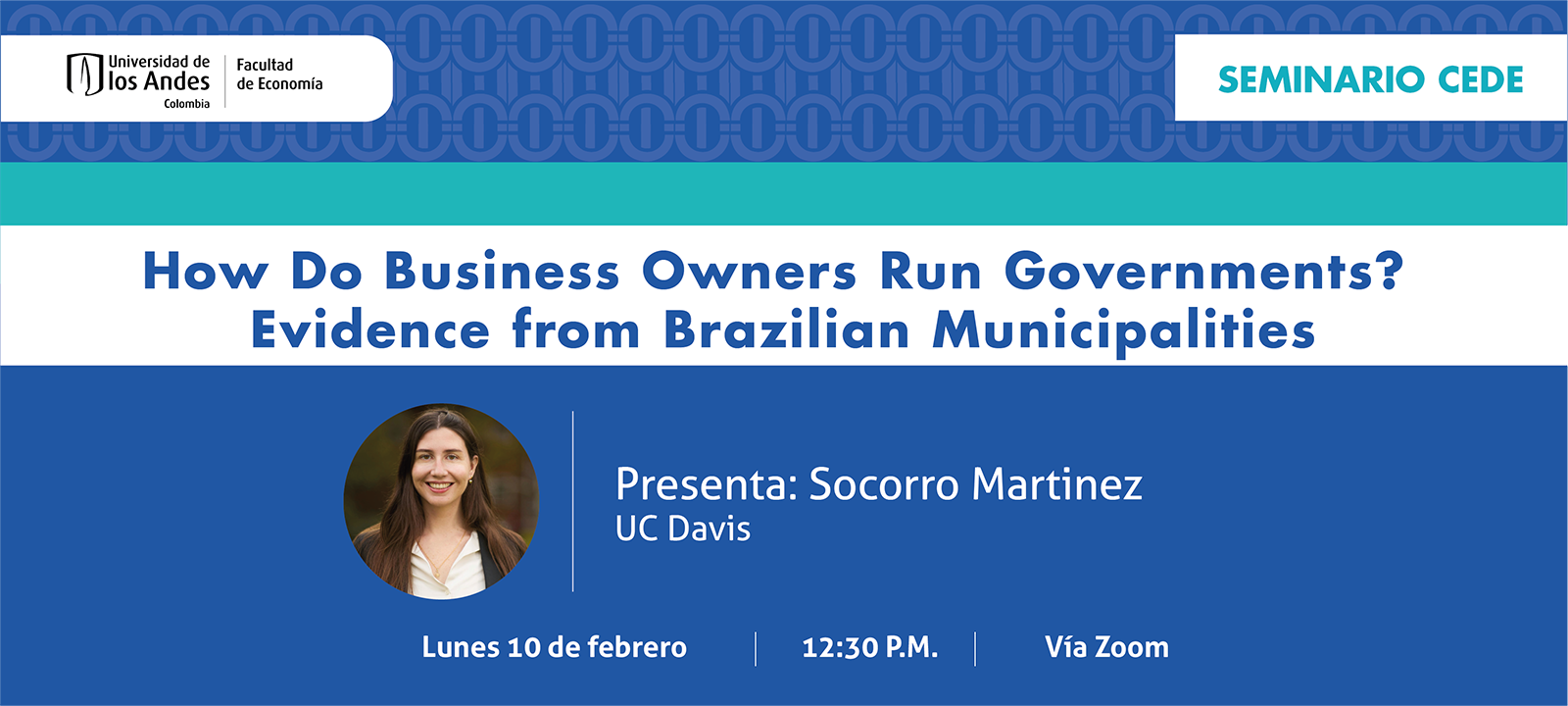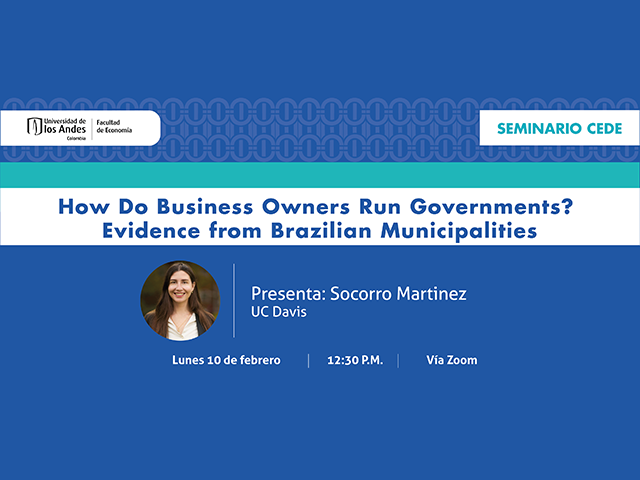Seminario CEDE - Socorro Martinez

Effective government leadership demands skills in planning, budgeting, and personnel management, areas where business experience may be valuable. Business owners could apply their management skills in public administration to optimize resources, enhance public service delivery, or promote private sector growth. However, these skills may not translate to the public sector, where different rules prevail, and a lack of political expertise could ultimately undermine the delivery of public services. This paper studies the impact of electing business owners as mayors in Brazilian municipalities. By leveraging a national business registry from the Brazilian Federal Revenue Agency that includes information on the owners, merged with candidates’ data from the Electoral High Court, I identify business candidates. Using a regression discontinuity design for close elections, I find that electing a business mayor reduces municipal revenue by 7.5% and spending by 8%. Evidence suggests that the reduction in revenue may be due to challenges in accessing intergovernmental transfers, indicating that managerial experience may come at the expense of political skills. Despite the decrease in spending, business mayors do not negatively affect public service delivery or local economic activity. I find no impact on health outcomes and a small but positive effect on private sector employment. These results indicate improvement in cost-effectiveness by achieving equivalent service levels with fewer resources. I examine management as a driver of increased effectiveness and find that business mayors do not improve personnel management outcomes, suggesting a limited ability to transfer or adapt their management experience to the public sector.

